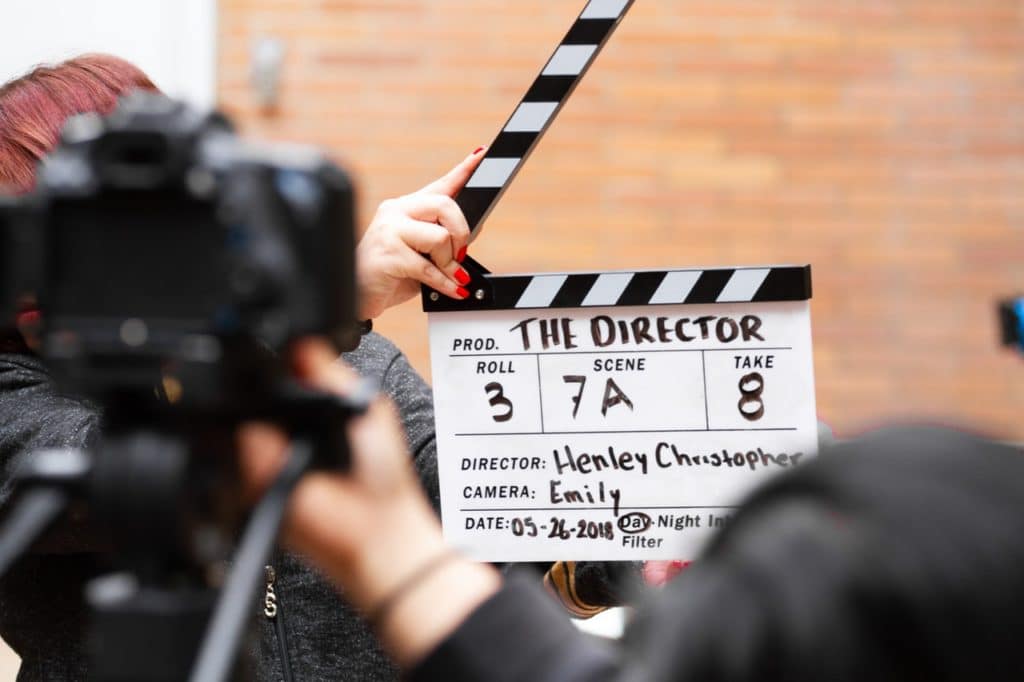“‘I’m ready to make my film but first I need to get the money’. Dear writer, actor, director, producer: No, that’s not true. You don’t have to get the money first. It is possible to make a film that the public likes with zero money. Absolutely.
Today doesn’t come from a specific question, but from an article that I think it’s important to share with all those with an interest in creating something. This speaks specifically about making films, but some points apply very well to any kind of artistic expression. As some of you may know, I directed a film* (you can see Synchrony right now here) that we financed, raised, finished and distributed completely independently, so I can tell you firsthand that it would have been nice to know a lot of these things before we started the journey.
The original text is by filmmaker and actress Tara Samuel and comes via MovieMaker. Credit to whom credit is due.
Rule #1
Decide you’re gonna make a movie, no matter what.
“Ruby Booby wouldn’t exist if we hadn’t said, ‘We have zero money, but we’re going to start shooting on December 10, 2009′”.
Rule #2
Ask, offer, repeat.
“Ask whoever, and everyone, whatever you need. Don’t stop asking. With humor, grace, and courtesy. Don’t be sorry. Ask and ask and you will find what you are looking for. From cameras, to lighting equipment, to sound, to costumes, to props, to food. Ask, ask and ask.
Offer. Always think about what the other person will want. Maybe they want to see how a movie is made. Maybe they want a small role. Maybe they want credit. Maybe they want to start their catering business and need experience. These are all real examples that we used to make Ruby Booby for free.
Although we didn’t do Synchrony totally without money, there were a lot of things we got for free. Particularly the location of the whole film. Without it, the film would literally not exist. So at the end of the credits you will find the following thanks to the parents of Adán Lerma, my partner in Don’t Panic Films and co-writer of the film:
Rule #3
Always say yes.
“When you don’t have money, you’re going to make your movie the moment you say yes to any opportunity/favor/gift/volunteer that comes your way. Say yes and find a way to turn that opportunity/favor/gift/volunteer into an element that supports the movie you’re making. Can your scene be set in your neighbor’s kitchen instead of a park (for which you need permission)? Can your characters’ costumes be more flexible?
Ruby Booby was recorded with two borrowed Canon HV20 cameras. The owner no longer used them and was happy to receive a thank-you credit. We were fascinated to have two cameras on the set.
If you don’t have money, your job is to accept any free camera/microphone/breakfast/location you come across.
Rule #4
Gratitude = Enthusiasm = More help to make your film.
“Show your appreciation and people will be more motivated to help you even more.
I would put it this way: You can’t offer money, but you can offer them incredible fun and treat everyone like they’ve never been treated before.
Rule #5
Collect the money on the way.
“Financial needs will arise, that’s true. They’re going to need to pay for gas, or things for catering, or repair the camera if it falls out of the car chest.
But don’t let the “threat” of those things delay your start. Start and keep a record of expenses, especially if you have to borrow (even 10 pesos) from someone.
It is in this area where it is particularly useful to have a “guardadito” or a small savings for “contingencies”. Even today there are tools such as Anchorage to get… well, funds. This becomes a little easier if you have some “fans” or managed to get a renowned actor or actress.
That said, if you plan your shooting and story well (if you follow Robert Rodriguez’s lesson and write a story that uses elements you already have) I don’t think you have much need for your “contingency money” to be too high.
So much for 123Movies advice.
I would add one last lesson and that is: You have to be prepared to stay alone with the film and take care of it on your own. Once you have your film finished and the time comes to place it before the eyes of an audience, it’s possible that none (or very few) of the team that made the film will be by your side. You’ll see most of them go to work on other things and maybe even do better, but don’t look at that. Concentrate on your film, you’re going to have to accept it: no one cares more about this than you.
You have to be prepared to fill out festival registration forms on your own, manage to send it out, or upload it to an online digital distribution service, and build a mini-marketing strategy that includes tweeting and Facebooking about it until your fingers hurt. *And manage to insert a mention, as uncomfortable and clumsy as it is, anywhere they let you talk or write.
No way. You wanted to make independent films. But, hey, you have a movie and that’s already a big achievement. They say.





